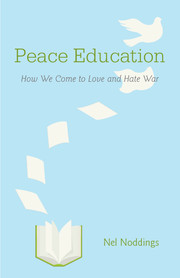2 - Destruction
Published online by Cambridge University Press: 05 December 2011
Summary
War is enormously destructive. It destroys lives, bodies, buildings, and property. It damages the natural environment, and often it destroys or badly damages the moral identity of those who serve in the armed forces. In the previous century and a half, because war was not fought within the boundaries of the United States, it may be especially hard for young Americans to grasp the enormity of war’s destruction. In this chapter, I’ll look first at the destruction of lives and bodies, then in turn at the destruction of property, the natural environment, and moral identity.
Bodies and lives
It is not necessary to memorize the number of casualties in the wars of the twentieth century, but students should spend some time thinking about those numbers. In that bloody century, more than 86 million people died in wars. The terrorist attack of 9/11/01 that killed almost 3,000 was a great shock to Americans. Imagine, then, what it must be like to live under frequent bombings and see your whole neighborhood reduced to rubble. Can the bombing of civilians be defended? Just war theory and modern war conventions state that noncombatants may not be deliberately attacked, and yet the escalation of civilian deaths in twentieth-century wars was dramatic: “In World War I, 95 percent of those killed in war were soldiers, 5% were civilians; in World War II, 52 percent were soldiers, 48% civilians; in the Korean War, 16 percent were soldiers, 84% were civilians.” We can provide a little math problem for our students: If there were 2 million deaths in the Vietnam War and 58,000 were American soldiers, how many people did the Vietnamese lose? And we can follow that with a social/historical question: Why is it so hard to separate the Vietnamese casualties into military and civilian? In the recent wars in Iraq and Afghanistan, civilian deaths have far outweighed those of the military.
- Type
- Chapter
- Information
- Peace EducationHow We Come to Love and Hate War, pp. 21 - 36Publisher: Cambridge University PressPrint publication year: 2011



